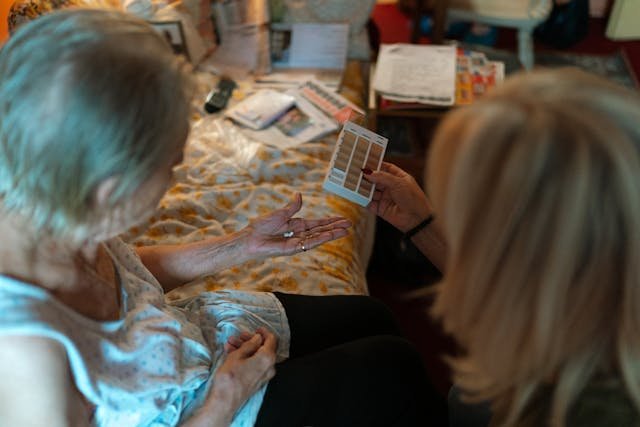
Moving a loved one with dementia into a memory care facility can feel like an emotional whirlwind, with a barrage of practical concerns adding to the turmoil. This major life shift challenges both the affected individual and their family, and it’s quite common for the first month to feel like uncharted territory, filled with uncertainties and worries.
Before the Big Move
The process starts weeks prior to the moving day. Reliable memory care facilities perform comprehensive evaluations to get a grasp of your loved one’s health requirements, cognitive state, daily habits and behavioural tendencies. All this information goes into creating their primary care plan.
Ensure that their new room feels like a safe haven. Adorn it with family photographs, beloved possessions and familiar objects that bring solace. Many families have found that moving a favourite piece of furniture – like a special chair or a nightstand – greatly aids in making the transition smoother.
Sorting through paperwork can seem like a daunting task. Medical records, insurance particulars, payment plans, and advance directives- all require attention. However, most institutions assign a representative to guide you through these prerequisites. Don’t hesitate to ask for guidance.
The Initial Week: Acclimatising to the new Environment
The first few days are often the hardest. It’s not unusual for your loved one to appear more perplexed, restless and disoriented than usual. While some may exhibit these feelings through restlessness or uneasiness, others might withdraw. It’s heartbreaking but is a common response to the new change.
The focus of the staff during this period is to connect with your loved one. They strive to comprehend their mode of communication, their comforting elements and triggers. Observing their sleep routine, food intake, medication reaction and social interaction helps the team to establish a normal routine for your family member.
Second and Third Weeks: Settling into a Routine
By the second week, the initial surprise starts to recede. Your loved one begins to recognise faces and places.
An unchanged day-to-day timetable provides necessary structure. From meal times to medications and activities, everything is predictable. This consistency aids those with memory loss by allowing their body and mind to anticipate the pattern.
During these weeks, responses to medications might differ. The strain of moving, new sleeping schedules and unfamiliar area can affect how medicines work. The care team stays vigilant and collaborates with the doctor for any necessary adjustments.
Fourth Week: Assessing the Situation
By the end of the month, most residents begin to adjust to their new surroundings. The institution usually arranges a meeting to assess the transition and make the requisite adjustments. This discussion focusses on health issues, emotional conditions, social engagement and behavioural patterns.
Family Experiences throughout the Transition
Dealing with your emotions while your loved one is adjusting, can be challenging. Feelings of guilt, anger and doubt are common, and you may need to learn new ways of interacting with your loved one.
Challenges faced in the First Month
Sleep disturbances are common amongst new residents. Resistance to care is also normal, and sometimes residents refuse to take their medication.
Indicators of a Successful Transition
Signs of acceptance include recognising staff members, feeling comfort in common areas, participating in activities, and establishing regular sleeping and eating patterns.
When to Express your Concerns
Although adjustment is gradual, some patterns should be given immediate attention. Signs of persistent distress, significant personality changes, or sedative-like behaviour during visits should be brought to attention immediately.
Looking Beyond the Initial Month
The transition period extends well beyond the first month. It can take up to six months for residents to settle in completely and reach their full potential within the community. The family’s support plays a crucial role in this ongoing process.
Patience is a virtue for everyone involved in this journey. With the right support, a clear understanding, and compassionate care, transitioning to a memory care facility can indeed enhance the quality of life for the person with dementia and their family.





